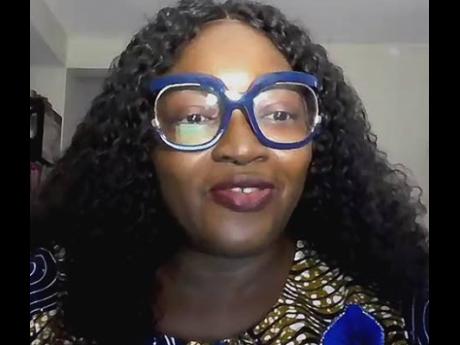Give communal support to cancer patients, says UHWI oncologist
WESTERN BUREAU:
Dr Magdalene Nwokocha, consultant haematologist and oncologist at the University Hospital of the West Indies [UHWI], is urging cancer patients’ relatives to rally round their ailing loved ones in a greater show of communal support.
This as she acknowledged the multiple toll that cancer care takes on caregivers and society.
Nwokocha made the observation on Sunday while addressing an online cancer seminar hosted by the Jamaica Union Conference of Seventh-day Adventists, in acknowledgement of the annual celebration of World Cancer Day on February 4. The seminar was held under the theme ‘I will go: Embracing a healthy lifestyle now.’
“Cancer has effects, not only on the patient who is being diagnosed, because you’re being informed that you have this disease and you now have to battle through the emotions of your diagnosis, and battle through the economics of it. We also have the effect on the caregiver, so if somebody is hired to take care of a cancer patient, there is the difficulty that that person goes through because it is not easy to watch a fellow human being suffer. And it is worse when the family members are the direct caregivers because the emotional and psychological stress is also there,” Nwokocha told the meeting.
“There is an effect on the economy generally, not only on the economy of the patient that has been diagnosed, and of the family, but also on the government, because here in Jamaica we know that care in the public hospitals is free, and the majority of our patients will go to the public hospitals to obtain care,” Nwokocha added. “Cancer is not a one-person affair, so we are appealing, we are asking, that a communal effort, communal support be given to the persons that are going through a diagnosis or going through treatment, because it makes the burden lighter.”
NEED FOR AWARENESS, EARLY DETECTION
The economic impact of cancer on Jamaicans was previously highlighted in 2017 by Yulit Gordon, president of the Jamaica Cancer Society, who stated that the high cost incurred in treating breast cancer has resulted in families going bankrupt. At that time, it was noted that approximately 300 Jamaican women die from breast cancer each year, many of whom die due to late diagnosis.
Nwokocha also told Sunday’s meeting that with more than 7,000 Jamaicans being newly diagnosed with cancer annually, there is a greater need for education and intervention in treating the disease and managing its risk factors.
“Given the population of 2.9 million in Jamaica, we’re having about 7,000 new cases every year, and of the 7000 new cases, more than half of the persons diagnosed end up dying from the disease. It is very bothersome, hence the need for awareness, for early detection, and for intervention, so we can reduce the number of deaths,” said Nwokocha.
“Is cancer contagious? No, it is not. There are some risk factors, but once somebody has been infected with cancer, you don’t need to avoid the person because the person is not going to infect you with cancer, because some mutation has to take place for the cancer to develop. So please don’t avoid a brother or sister or friends that have cancer, because you’re not going to get infected by interacting with that person,” Nwokocha stressed.
In Jamaica, breast cancer has been identified as the leading cause of cancer-related death in women, with that cancer accounting for 34.1 percent of new cancer cases among women in 2020. Meanwhile, prostate cancer is the leading cause of cancer-related death in men, and it accounted for 42.8 percent of new cancer cases among men that same year.

